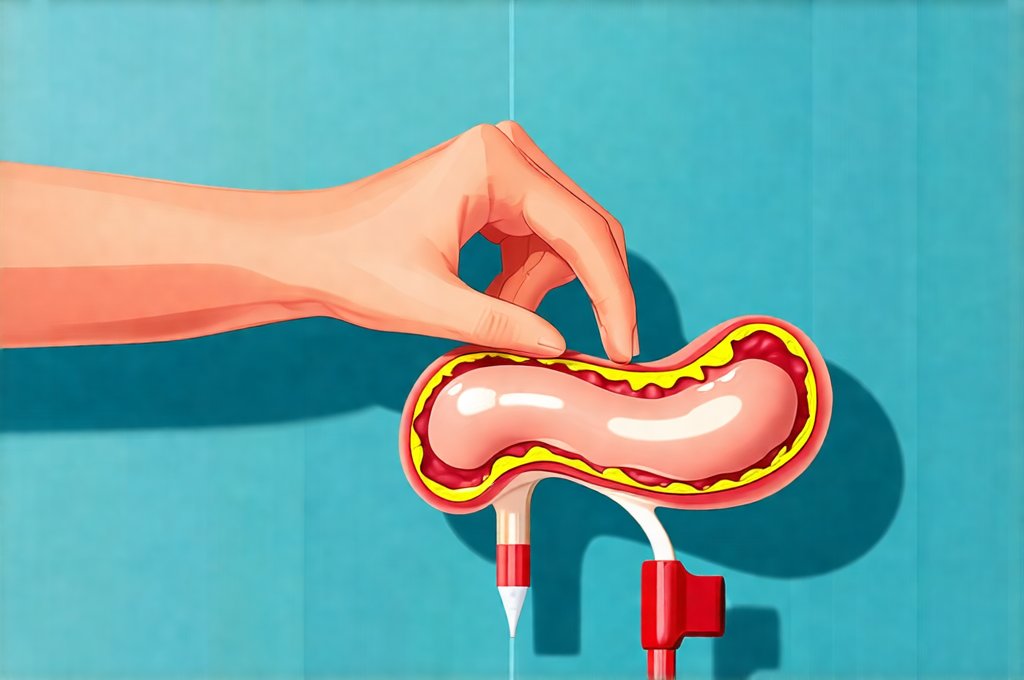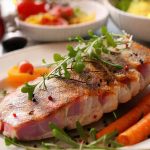Gastroesophageal Reflux Disease (GERD) can be incredibly isolating. Many individuals find themselves significantly restricting their diets and lifestyles in an effort to manage symptoms, leading to a sense of being left out or unable to participate in social activities they once enjoyed. The fear of heartburn, bloating, or other uncomfortable digestive issues often overshadows the joy of connection and shared experiences. This isn’t just about avoiding certain foods; it’s about navigating a world built around eating and socializing – celebrations, work lunches, even casual coffee breaks – while prioritizing your health. It requires mindful strategies and a proactive approach to ensure that managing GERD doesn’t mean sacrificing your social life altogether.
The key lies in finding a balance between adhering to your GERD protocol and maintaining meaningful connections with others. This isn’t about deprivation; it’s about adaptation. It’s about learning how to navigate social situations with confidence, communicate your needs effectively, and proactively plan for success. It requires understanding your specific triggers and limitations and finding ways to enjoy social interaction without compromising your well-being. A fulfilling social life is an integral part of overall health, and it’s absolutely possible to maintain both – a healthy gut and thriving relationships. If you find navigating these restrictions difficult, consider how to stay social with dietary restrictions.
Navigating Social Eating & Events
Socializing often revolves around food, making it one of the biggest challenges for those with GERD. Simply avoiding all gatherings isn’t a long-term solution; it can lead to feelings of loneliness and exclusion. Instead, focus on strategies that allow you to participate while minimizing potential flare-ups. This begins before the event even starts – proactive planning is essential. Consider what kind of food will likely be served, who will be there, and how long the event will last. Thinking through these details allows you to prepare mentally and potentially make adjustments beforehand.
One powerful technique is pre-eating. Having a small, GERD-friendly snack or meal before attending an event can help prevent you from arriving hungry and making impulsive food choices. This provides a buffer that allows you to be more selective when faced with tempting but potentially problematic options. It also empowers you to politely decline foods that might trigger your symptoms without feeling pressured. Remember, explaining your dietary needs is perfectly acceptable – most people are understanding and supportive, especially if you frame it as needing to prioritize your health. You can learn more about how to explain your diet without awkwardness in a way that’s comfortable for both of you.
Furthermore, don’t be afraid to bring a dish to share! This allows you to ensure there’s at least one safe option available for you and potentially introduce others to GERD-friendly alternatives. It also takes the pressure off of relying solely on what’s being offered. If you are attending an event where food choices are limited, focus on socializing rather than fixating on what you can’t eat. Engage in conversations, offer genuine interest in others, and remember that your presence and connection are more valuable than consuming a particular food item. Your worth isn’t defined by the foods you avoid.
Pre-Planning & Communication Strategies
Preparing for social events with GERD goes beyond just thinking about the food. It involves clear communication with hosts or organizers and developing strategies to manage potential triggers. Start by politely inquiring about the menu beforehand, if possible. A simple “I have some dietary restrictions due to a health condition – would you mind sharing what’s being served?” can open up a conversation and allow you to plan accordingly. Don’t feel obligated to disclose specific details about your GERD unless you are comfortable doing so; simply stating “dietary needs” is often sufficient.
Next, consider bringing backup options. This could include a small, portable snack like plain crackers or a piece of fruit, or even a medication if you anticipate potential issues. Having these tools readily available provides peace of mind and allows you to address any discomfort quickly. Remember to always carry your necessary medications with you. If attending an event where alcohol is served, be mindful of its impact on GERD symptoms. Alcohol can relax the lower esophageal sphincter, increasing the risk of acid reflux. Limiting intake or opting for non-alcoholic beverages are helpful strategies.
Finally, practice assertive communication. If offered food that doesn’t align with your protocol, politely decline without offering excessive explanation. A simple “No thank you, it looks delicious but I’m not able to eat that right now” is often enough. Don’t feel guilty or pressured into eating something that will negatively impact your health – prioritizing your well-being isn’t selfish; it’s self-care. Remember, setting boundaries is crucial for managing GERD and maintaining a positive social experience. Learning how to eat out without stressing your gut can further ease these anxieties.
Managing Flare-Ups in Public
Despite careful planning, flare-ups can happen unexpectedly. Being prepared to handle these situations discreetly and effectively is essential for maintaining your composure and minimizing disruption. The first step is recognizing the early warning signs – that familiar burning sensation, bloating, or discomfort. Addressing symptoms promptly can often prevent them from escalating. If you have medication prescribed by your doctor, take it as needed.
If a flare-up occurs during an event, excuse yourself politely to find a private space. A restroom offers privacy and allows you to manage the situation without drawing unnecessary attention. Deep breathing exercises or gentle stretching can also help alleviate discomfort. Avoid lying down immediately after eating, as this can exacerbate reflux symptoms. Focus on staying upright and taking slow, shallow breaths.
Finally, don’t feel embarrassed or ashamed to leave an event early if necessary. Your health is paramount, and there’s no shame in prioritizing your well-being. Communicate with the host beforehand, if possible, explaining that you aren’t feeling well and need to excuse yourself. Taking care of yourself isn’t a sign of weakness; it’s a sign of strength. If you are concerned about how food affects you, you can test your reactions without risk.
Building Supportive Relationships
Having understanding and supportive friends and family is invaluable when navigating life with GERD. Openly communicating your needs and limitations allows them to better understand your challenges and offer appropriate support. This doesn’t mean constantly discussing your symptoms; it means being comfortable sharing information about your dietary restrictions and explaining why you might need to decline certain foods or activities.
Encourage loved ones to learn more about GERD. Sharing reliable resources, such as websites from reputable medical organizations, can help them understand the condition and appreciate the challenges you face. This knowledge fosters empathy and reduces the likelihood of misunderstandings. Furthermore, invite your friends and family to join you in exploring GERD-friendly recipes or activities.
Finally, seek out social groups or online communities specifically for individuals with digestive health conditions. Connecting with others who share similar experiences can provide a sense of camaraderie and validation. Sharing tips, offering encouragement, and simply knowing that you’re not alone can significantly improve your emotional well-being. A strong support system is essential for navigating the challenges of GERD and maintaining a fulfilling social life. It’s also possible to stay social without sacrificing gut health with mindful planning, and learning how to eat more without upsetting your stomach can help you feel comfortable in social situations too.


















